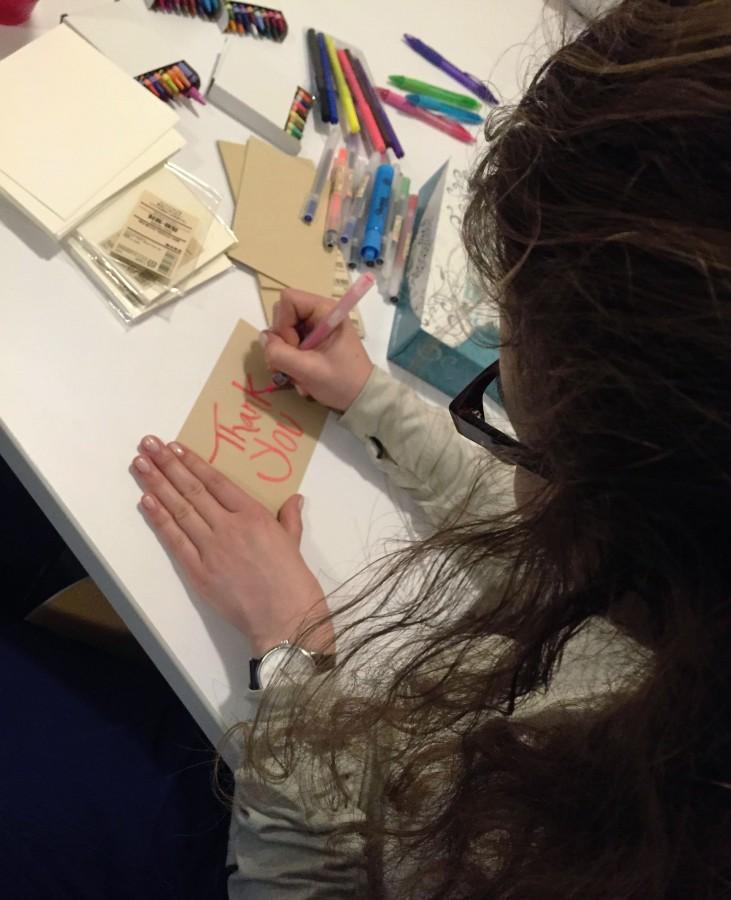A Look at the NYU Students Sending Thank You Letters to Abortion Clinics
Students for Sexual Respect held a thank you note writing event to send to abortion providers.
March 29, 2016
Amidst ongoing controversy over legislation in various states taking aim at abortion facilities, the Students for Sexual Respect and the Feminist Club showed their appreciation for abortion providers on Monday afternoon by writing thank you cards together.
Both clubs work together in their shared meeting space, the newly developed. Sexual Misconduct Prevention, Assistance, Counseling, & Education area at the NYU Student Health Center.
Monday’s event focused on issues that abortion clinics in many states have been facing recently, including dramatic reductions in their funding. Despite 11 states, Florida being the most recent, passing bills that defund Planned Parenthood, there are still doctors that continue to try to provide care for women in these states.
CAS senior, vice president for Students for Sexual Respect and president of the Feminist Society Meghan Racklin said this event was an opportunity to show appreciation for those that continue to give their service.
“We wanted to get some people together to write thank you cards for abortion providers around the country, particularly abortion providers that are working in states where they really are trying to essentially legislate abortion out of existence,” Racklin said. “All of the doctors who provide abortion care to women are putting their lives on the line everyday just to provide access for a basic medical procedure.”
Monday’s event was held particularly in response to a current Supreme Court case, Whole Women’s Health v. Hellerstedt, which could reduce the number of abortion clinics in Texas to as low as 10.
Racklin said these hardships were part of the reason why she wanted to give back to abortion providers with cards.
“We know that the work they do is very hard and we just want to show them that we appreciate them,” Racklin said.
Gallatin junior and president of the Students for Sexual Respect Josy Jablons said the card writing event was a way to appreciate what abortion providers do, even as legislators attempt to discredit their work.
“If this becomes a law a bunch of abortion clinics will be shut down based on some absurd technicalities,” Jablons said. “They’re called sham laws, so the big campaign is to stop the sham laws.”
Some of the technical requirements at stake in Whole Women’s Health v. Hellerstedt include abortion doctors needing to have admitting privileges at a hospital within 30 miles of the abortion clinic — which most hospitals do not provide — and prohibition of abortions 20 weeks post-fertilization. Jablons said that even in Texas, where doctors are harassed and burdened by restrictive laws, abortion providers still give patients care.
“I’ve seen some of the violence first hand that abortion providers face on a daily basis,” Jablons said. “[Card writing] is something you can do at a micro level that I think has a very strong impact.”
Email Brooke Jensen at [email protected].


























































































































































